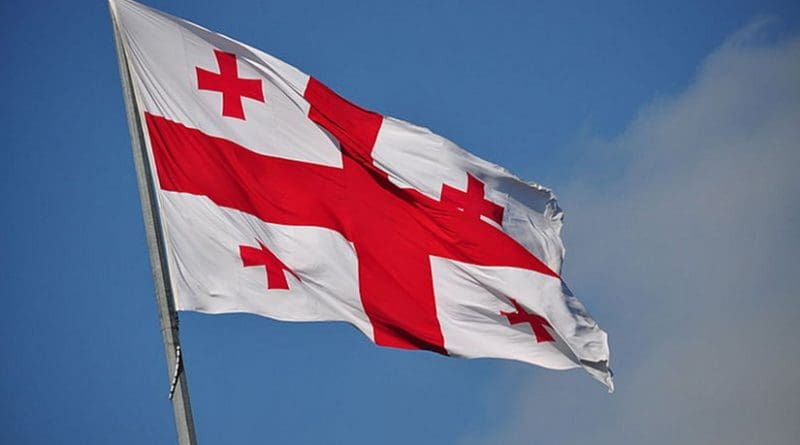A Crisis In Georgia-Israel Relations – Analysis
The intrigue surrounding Georgia-Israel relations just got even more interesting. This is not in reference to the Rony Fuchs trial and conviction or even the recently-leveled allegation by Israeli defense manufacturer Elbit Systems that the Georgian government owes them USD $100 million for unmanned drones it acquired. Rather, the latest news is that Global CST, an Israeli security services firm that once had training contracts with the Georgian military prior to the August 2008 war, looks to be hunting for contracts with the de facto Abkhazian government.
Besides security, the talks are said to be also exploring opportunities for cooperation in areas of economic development, as the company also has a civil division and markets itself as a kind of soup to nuts consultancy for developing states (or quasi states, as the case might be). Tellingly, the original Apsny report indicates that these discussions have the blessing [original] of the Israeli government.
This represents, in the span of less than a month, the third major incident of concern between Georgia and Israel, two countries that not too long ago were considered to be very close. For a long time, Israel’s economic growth and geopolitical prowess in a rough neighborhood was considered by many in Georgia as a success story to emulate. And in addition to defense sales, a number of Israeli defense companies like Global CST were in Georgia helping to train Georgian troops in basic tactics; all of this ended after the August 2008 war. Afterwards, Israel turned around and began selling its drones to Russia, an act that was sure to not win any great amount of admiration in Tbilisi.
But it hardly accounts for what now appears to be a crisis in Georgia-Israel relations. While the Rony Fuchs trial could possibly have been seen as an isolated incident, with the Elbit Systems charges as a further stressor in bilateral ties, Global CST’s appearance in Sukhumi with the apparent go-ahead of Tel Aviv suggests a trend.
There hasn’t been anything in the way of public statements, but developments might indicate a record of increasing acrimony between the ex-friends. It was not long after Israel severed its defense relations with Georgia that Tbilisi began to take a new approach towards Iran, a country seen by many in Israel as being a very real existential threat. While Georgia had previously cooperated with Western agencies to nab suspected Iranian agents, at the great expense of Tbilisi-Tehran relations, Georgia took a u-turn on this policy not long after the August War, culminating in a series of agreements inked between Georgia and Iran amidst a new era in ties. Has Tbilisi’s newfound cordiality with Tehran come at the expense of ties with Israel? It’s certainly possible, particularly considering an interesting comment Georgian foreign minister Grigol Vashadze made in response to questions about Iran’s nuclear program. He notes that Iran, being an NPT signatory, had a right to a civil nuclear program and saying that IAEA control should extend universally. Israel, however, is quite famously a non-signatory to the NPT. Is that a veiled dig at Israel?
Georgia’s interest in Tehran also coincided during a time of a major upgrade in relations with Ankara, which has flipped from being one of Israel’s most reliable allies into something altogether not. Turkey, which has sought to establish itself as an independent pole of power, has made great pains to assert itself in the Middle East and the Caucasus, which has apparently come at the price of its relationship with Israel and, to a lesser extent, the U.S. and Western Europe. Georgia, for its part, has found in Turkey a potential patron with more of a direct interest in limiting Russia’s reimperialization of its near abroad.
Illustrating the degree to which Tbilisi and Ankara’s foreign policies have synchronized recently, Vashadze even used the familiar “zero problems” turn of phrase, originally coined by Turkish FM Ahmet Davutoglu to describe Turkey’s geopolitical reorientation, when describing Georgia’s support for the controversial Turkey-brokered nuclear fuel swap deal last summer. In the face of Georgia’s movement closer to positions compatible with Ankara and, more importantly if somewhat less so, Tehran, has the Israel-Georgia partnership fallen to the wayside?
The evidence is not encouraging. It’s clear that Israel no longer has the clout in Tbilisi to have helped sway the controversial Rony Fuchs trial, which government officials almost certainly knew would generate backlash in Israel. And the response by Israel — giving green lights to Elbit Systems to press its case and to Global CST to do business in Abkhazia — create the impression of a tit-for-tat between two capitals that once counted each another as friends.
If this is indeed the case and if this escalates, the fracture could create problems for Tbilisi among its Washington allies, whose support for Israel is a longtime, bipartisan value that has proven highly resilient over the years. Georgia, though it has cultivated friendships in key quarters of the American political spectrum and relies heavily on high-end lobbyists, has little chance of being favored over the Jewish state. On the other hand, the impression of a decisive Georgia-Israel split (and a spat with the U.S.) could further endear Tbilisi to many Middle Eastern and ‘non-aligned’ capitals.
While it’s unclear as to whether or not the current crisis with Israel is a temporary problem or the beginning of a permanent trend, there is no doubt that friendliness between Israel and Georgia can no longer be taken for granted.

